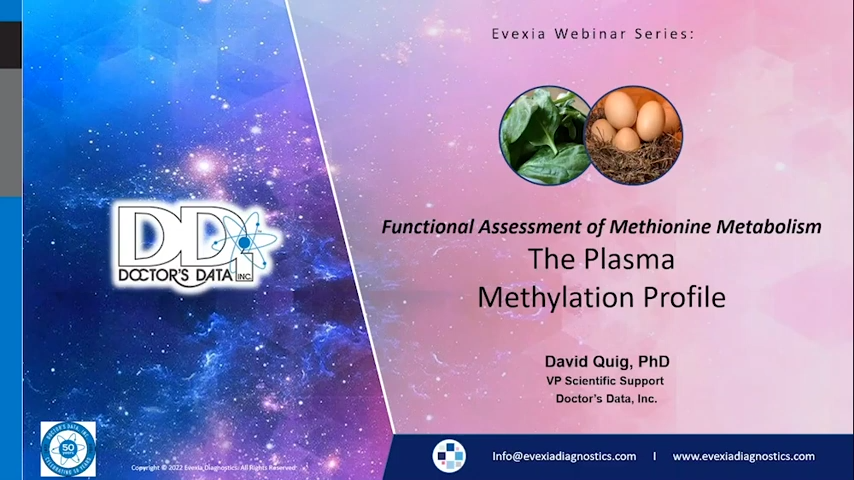Functional Assessment of Essential Methionine Metabolism The Plasma Methylation Profile
Feb 25, 2022 | Methylation, Wellness
David W. Quig, Ph.D.
This presentation will take clinicians on a concise journey south of methionine through the transmethylation, transsulfuration and re-methylation trails with emphasis on key regulators of clinical relevance. Normal metabolism of methionine is critical for cellular methylation of DNA and proteins, the production of phoshatidylcholine and creatine, detoxification, and metabolism of neurotransmitters and estrogens. Aberrant methionine metabolism can occur in anyone at any age and can be associated with numerous health conditions including cardiovascular disease, immune dysfunction, recurrent pregnancy losses, anxiety, depression and neuropsychiatric disorders.
Far beyond genetic polymorphisms, direct evaluation of the plasma levels of the downstream metabolites of methionine provides an integrated metabolic profile reflecting the net influences of genetic and epigenetic factors, nutritional insufficiencies, and environmental toxicants on methylation and transsulfuration. After reviewing some case results, participants will experience how the test can facilitate appropriate individualized interventions towards normalization of methionine metabolism and amelioration of consequences associated with inadequate methylation and/or transsulfuration capacity.
David Quig received his B.S and M.S degrees in Human Nutrition from Virginia Tech, and his Ph.D. in Nutritional Biochemistry from the University of Illinois. He was then a Research Associate at Cornell University for five years, prior to serving as a Senior Cardiovascular Pharmacologist with a major pharmaceutical company for seven years. For the past 42 years, he has performed and published research pertaining to nutrition, environmental medicine and chronic diseases. David is the Vice President of Scientific Support for Doctor’s Data, Inc. where he consults with medical practitioners about recent biomedical research, and interpretation of laboratory test results and treatment options for their patients.
